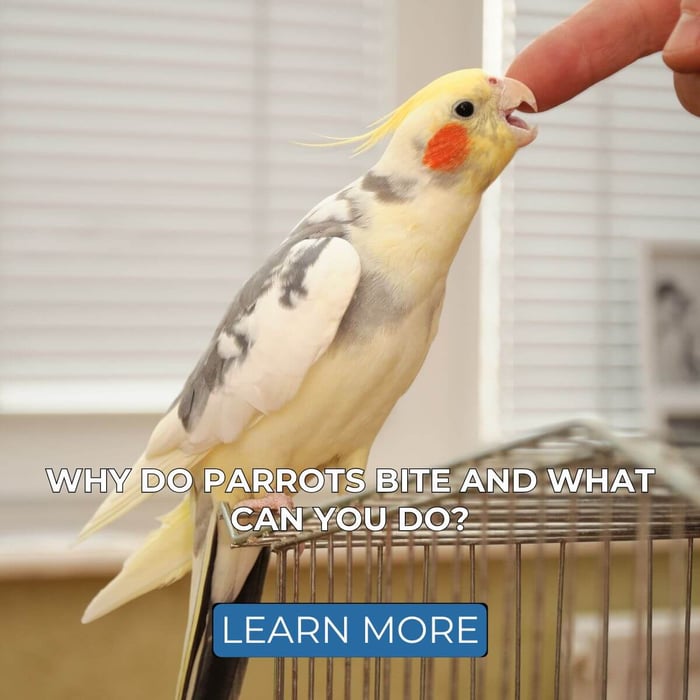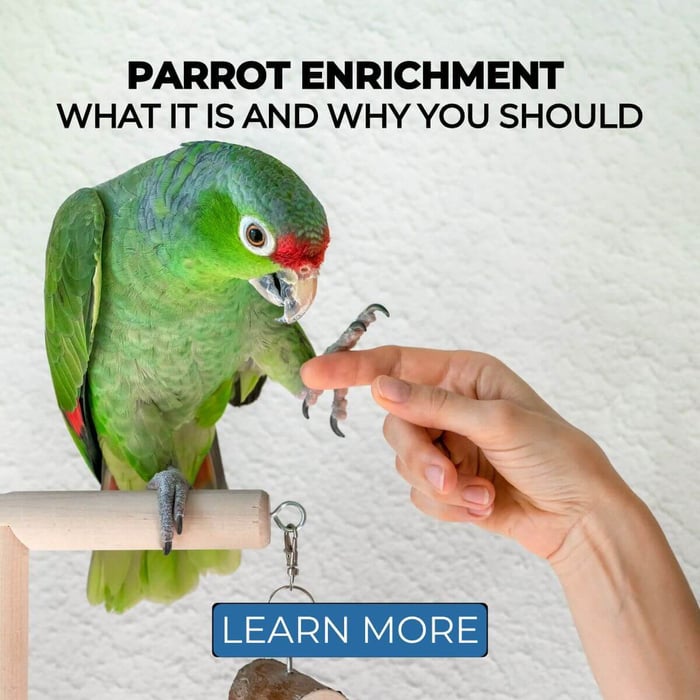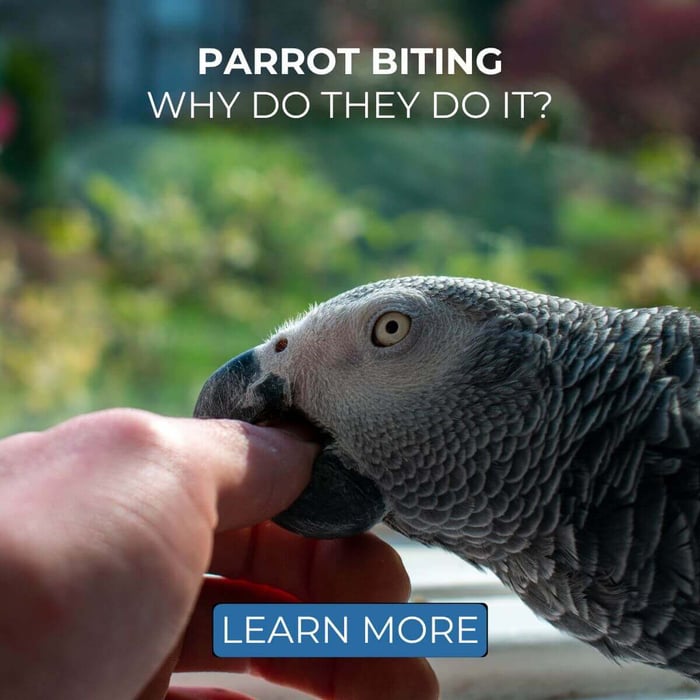Parrot Aggression - Explanations and Solutions
It can be heartbreaking if your previously snuggly parrot seems to become aggressive overnight or if the long-awaited feathered addition to the family doesn't turn out to be as friendly as you would have hoped. Parrot aggression can come as a surprise, especially when you've invested time and love in building a relationship with your bird. How does one cope with parrot aggression and regain the bond with your pet? In this post, we'll explore the possible causes of parrot aggression and what you can do to help stop this unwanted behaviour.
Parrot Aggression: Why Is My Bird Acting Like This?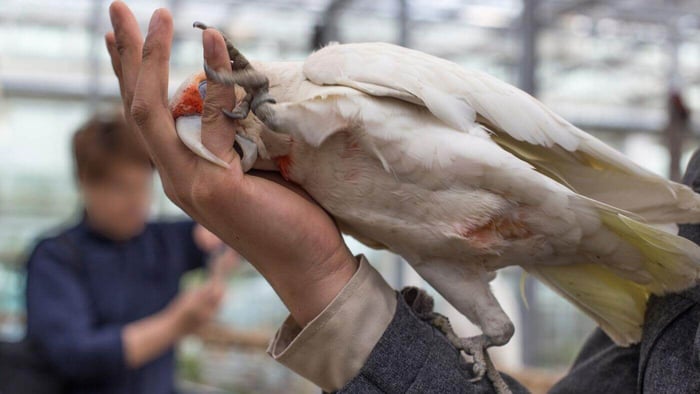
Parrot aggression can be perplexing, but understanding the underlying reasons can help you address the issue. In principle, parrot aggression is not a sign of a "bad" bird; it's simply an expression of discomfort and fear. Parrots are highly intelligent and sensitive creatures, and aggression usually stems from a perceived need to protect themselves or their territory. Let's delve into some common reasons for parrot aggression and what you can do to mitigate it.
Lack of Socialisation
One of the most common reasons for parrot aggression is a lack of socialisation. Parrots are social animals, and if they aren't properly socialised with humans or other pets, they may perceive humans as threats. This fear can trigger aggressive behaviour as the bird tries to protect itself. Parrots that are not hand-raised or have limited human interaction may become more defensive, leading to biting or other aggressive responses when approached.
A Traumatic Event
Parrots are highly sensitive to their environment, and they can form associations between events and their owners. A single traumatic incident, such as a visit to the vet, a sudden loud noise, or even an accidental injury, can lead to aggression. Your bird might link that event with you or the environment, resulting in long-term behavioural issues. It's crucial to address the underlying trauma and create a positive, stress-free environment for your parrot to heal from the experience.
Discomfort or Illness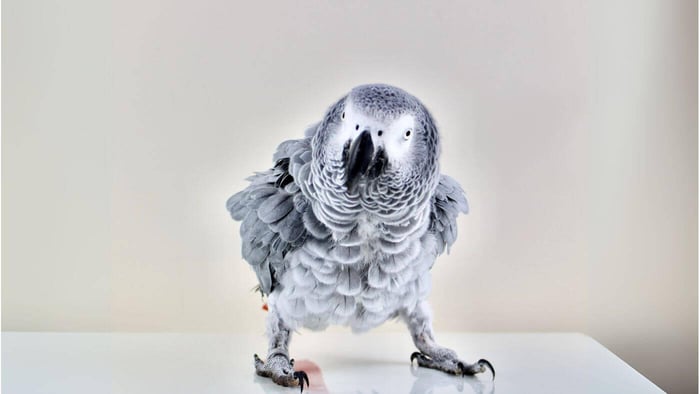
Parrots can also become aggressive when they are in pain or discomfort. This might be due to illness, injury, or even environmental stressors such as an uncomfortable cage or dirty living conditions. If your parrot suddenly exhibits aggressive behaviour, it's essential to rule out any physical issues first. A visit to an avian vet can help identify any potential health problems that may be contributing to the aggression. Always keep an eye on your bird's physical health and ensure their environment is clean and comfortable.
Loneliness and Boredom
Parrots are intelligent and highly social animals, so loneliness and boredom can easily lead to aggression. Without enough mental stimulation and social interaction, parrots may become frustrated and exhibit undesirable behaviours such as biting, screaming, or aggression. Ensuring that your parrot has enough activities, toys, and social interaction can go a long way in preventing aggression. Consider spending time with your bird daily and offering a variety of toys and puzzles to keep their mind active.
(Over)Stimulation
While boredom can lead to aggression, over-stimulation can have the same effect. If your parrot becomes overwhelmed, it might lash out in an attempt to regain control of the situation. Parrots can become agitated by too much noise, too many people, or too many new stimuli at once. If your parrot is displaying aggressive behaviour, it may be trying to communicate that it's feeling overstimulated. Make sure your bird's environment is calm and that it has quiet spaces to retreat to when needed.
Hormones
Hormonal changes are a well-known cause of aggression in parrots, especially during breeding season. Springtime, in particular, can bring out territorial behaviours and heightened aggression in many parrot species. Male parrots, in particular, may display more dominant behaviours, such as biting or lunging, while females may become more protective of their nesting area. During these times, it's best to give your parrot space and avoid unnecessary interactions until the hormonal period has passed.
You!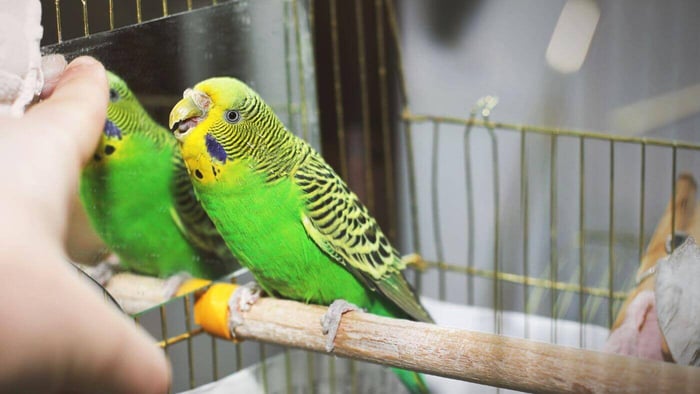
As tough as it might be to hear, your own behaviour could be contributing to your parrot's aggression. Parrots are highly observant and sensitive to body language, tone of voice, and the way they are handled. It's possible that you might be unknowingly reinforcing bad behaviours or not recognising subtle signs of discomfort in your bird. For example, pulling away when your bird bites or yelling at them can escalate aggression. It's important to learn how to read your parrot's body language and avoid triggering their defensive reactions.
Tip: If biting is a common issue, check out additional articles on why parrots bite and how to handle biting behaviour effectively.
Macaws and Other Large Parrots: Managing Aggression
Macaws and other large parrots present a unique challenge when it comes to aggression management. These birds have large, powerful beaks, and even minor aggressive behaviour can cause significant injury. With large parrots, preventing aggression is key to a safe and happy relationship. Understanding the signs of aggression early on can help you implement positive behaviour modification strategies before things escalate.
What Can I Do to Stop Parrot Aggression?
There is no one-size-fits-all solution for parrot aggression, as the cause of the behaviour will dictate the best course of action. Here are some general tips for managing and reducing aggression in parrots:
Don't React to Biting or Aggressive Behaviour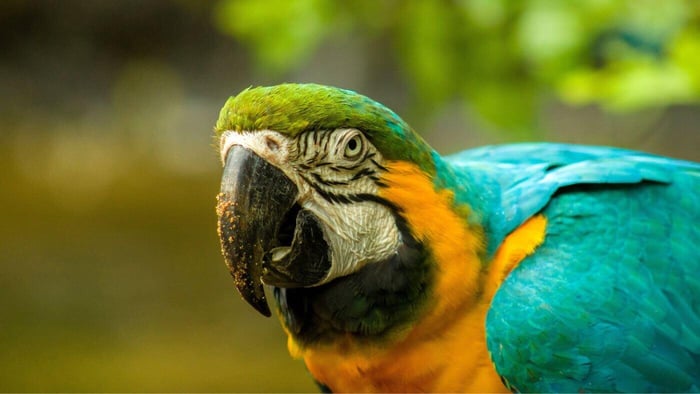
When your parrot displays aggression, the worst thing you can do is react with anger, frustration, or punishment. Pulling your hand away quickly, shouting, or punishing your bird can intensify the behaviour. Instead, remain calm and gently set your parrot down in a safe place. Walk away and give your bird space to calm down. Over time, this will help your parrot understand that aggression does not result in any attention or rewards.
Ensure Comfort and Health
Make sure your parrot's living environment is comfortable, clean, and free of stressors. Check for any potential discomfort, such as dirty toys, overcrowded cages, or anything that could be causing physical or emotional strain. If your parrot's aggression is sudden, consider taking them to an avian vet to rule out illness or injury.
Provide Plenty of Mental and Physical Stimulation
Parrots need both mental and physical stimulation to stay happy and healthy. Provide a variety of toys, perches, and activities to keep your bird entertained. Interactive toys, foraging opportunities, and regular out-of-cage time are great ways to prevent boredom and reduce the likelihood of aggression. A well-stimulated parrot is less likely to engage in aggressive behaviours out of frustration.
Training Is Key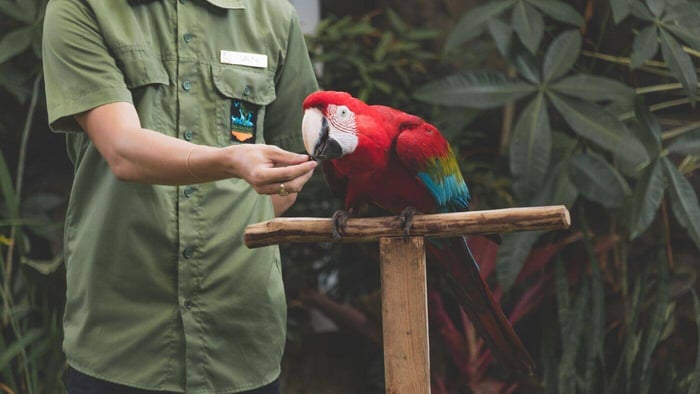
Investing time in training your parrot can help prevent aggression and strengthen your bond. Positive reinforcement training, where you reward good behaviour with treats or praise, can be a highly effective way to modify aggressive tendencies. Training sessions also provide your parrot with mental stimulation and an outlet for energy, which can help reduce frustration.
Know When to Back Off
If your parrot's aggression is related to hormonal changes, such as during the breeding season, it's best to give them space and avoid forcing interactions. Sometimes, simply waiting for the hormones to subside is the best way to handle the situation. During this time, it's important to respect your bird's boundaries and allow them the time they need to return to a more balanced state.
Conclusion - Understanding Parrot Aggression
There are many reasons for parrot aggression, and many of them stem from the bird's natural instincts to protect itself or its territory. With a little patience, understanding, and the right approach, you can help your parrot feel more secure and reduce aggressive behaviours. Don't hesitate to seek professional help if you're struggling to understand your parrot's behaviour. A parrot behaviour expert can provide valuable insights and strategies to help you build a stronger bond with your feathered friend and create a peaceful, happy home.


